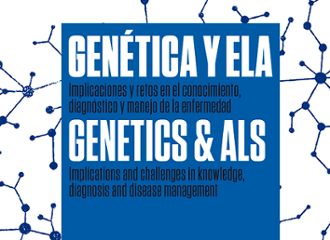Research projects
Start of main content
Analysis using genetically modified mice of the possible role of alpha-synuclein in the pathogenesis of Huntington's disease
15th National Programme for the allocation of Research Grants for Life and Matter Sciences
Rare diseases
Research Centre or Institution : Centro de Biología Molecular "Severo Ochoa". CSIC-Universidad Autónoma de Madrid
Abstract
Huntington's disease (HD) is caused by polyglutamine expansion in the huntingtin protein that leads it to aggregate and form inclusion bodies (IBs). IBs are a common feature of neurodegenerative diseases. In the case of Parkinson's disease, they are formed by the alpha-synuclein (a syn) protein. Because there are hereditary forms of Parkinson's disease due to mutations (point or duplication mutations) of a syn in the gene, it is known that alterations in the aggregation or levels of a syn are sufficient to cause neurodegeneration. Based on the preliminary results of co location of a syn in the IBs of patients and animal models for HD, it was hypothesised that a syn is a key mediator in the pathogenesis of HD. The main objective of the proposal is, therefore, to generate and analyse transgenic mice with HD with different gene doses of a syn.
-
 Activities related
Activities related
-
 Projects related
Projects related
-
 News related
News related
-
 Publications related
Publications related
 Activities related
Activities related
-
8
Apr
2024
Panel Discussion Mundo de las prótesis, los nuevos materiales, sus complicaciones y su futuro Madrid , Lunes, 8 de abril 2024. 17.00 horas
-
23
Apr
2024
Session Situación actual de las Enfermedades Raras en España Madrid, Martes, 23 de abril de 2024, 10:00 horas
-
9
May
2024
Conference Genes de mosca y genes humanos: una comparación Madrid, Jueves 09 de mayo de 2024, 19:00 horas
 Projects related
Projects related
- Systemic analysis of the gene regulatory networks involved in the specification and maintenance of the retinal pigment epithelium: towards new therapies for retinal degenerative diseases 2016 Senior Researcher : Paola Bovolenta Nicolao Research Centre or Institution : Centro de Biología Molecular "Severo Ochoa". CSIC-Universidad Autónoma de Madrid
- Molecular basis of immune deficiency in Wolf-Hirschhorn Syndrome (4p-) 2016 Senior Researcher : César Cobaleda Hernández Research Centre or Institution : Centro de Biología Molecular "Severo Ochoa". CSIC-Universidad Autónoma de Madrid
- Novel immunotherapeutic strategies against T-ALL, a rare pediatric disease 2018 Senior Researcher : María Luisa Toribio García Research Centre or Institution : Centro de Biología Molecular "Severo Ochoa". CSIC-Universidad Autónoma de Madrid
 News related
News related
-

-

Eric D. Green: “La genómica debe integrarse en la medicina convencional”
Published on 03/12/2021
 Publications related
Publications related
End of main content






